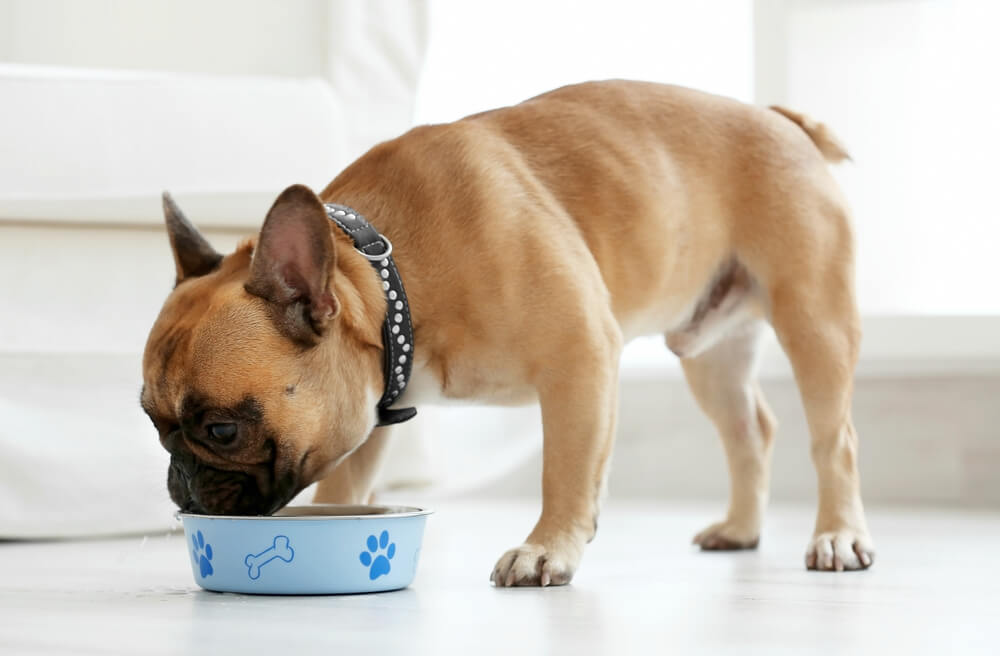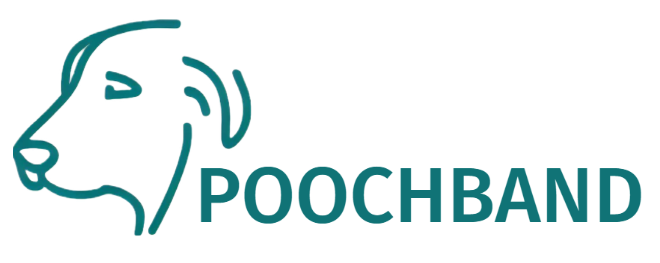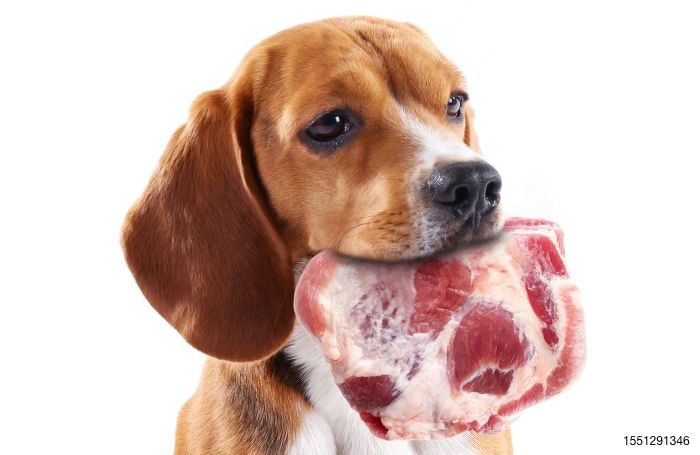As our canine companions age, their dietary needs evolve, prompting many pet owners to wonder whether high-protein dog food is a suitable choice for their senior furry friends. The debate over the ideal diet for older dogs is ongoing, with various factors coming into play. In this article, we’ll explore the benefits and potential concerns associated with high-protein dog food for older dogs, helping you make an informed decision about your senior pet’s nutrition.
What Constitutes A High-Quality Protein?
High-quality protein for dogs comes from sources that are highly digestible and provide a complete profile of essential amino acids. These amino acids are the building blocks of proteins and are necessary for your dog’s overall health and well-being. When evaluating the quality of protein in your dog’s food, consider the following factors:
Animal-Based Sources
Animal-based proteins are generally of higher quality for dogs than plant-based proteins. Look for dog foods that list specific animal protein sources, such as chicken, beef, turkey, lamb, fish, or eggs, as the primary ingredients.
Meat Meals
Meat meals (e.g., chicken meal, lamb meal, fish meal) are concentrated sources of protein and can be of high quality. They are made by rendering and drying meat, which removes water content and results in a more protein-rich ingredient.
Protein Percentage
Check the guaranteed analysis on the dog food label to see the protein percentage. A higher percentage often indicates a higher protein content, but it’s not the only factor to consider.
Amino Acid Profile
A high-quality protein source should provide a complete and balanced profile of essential amino acids. These amino acids are necessary for muscle maintenance, immune function, and overall health.
Digestibility
The protein source should be easily digestible for your dog. Highly digestible proteins are efficiently absorbed and utilized by your dog’s body, minimizing waste and potential digestive issues.
Limited Fillers
Avoid dog foods that rely heavily on fillers like corn, wheat, and soy. These fillers offer lower-quality protein and can be less digestible for dogs.
Named Ingredients
Look for dog foods that explicitly state the protein source as “chicken,” “beef,” or another specific animal, rather than vague terms like “meat by-products” or “animal meal.”
No Artificial Additives
High-quality protein sources should be free from artificial additives, preservatives, and excessive processing.
Brand Reputation
Choose dog food brands with a reputation for using quality ingredients and adhering to strict manufacturing standards. Research and read reviews to ensure the brand is trustworthy.
How Much Protein Does An Older Dog Need?

The protein needs of an older dog can vary depending on several factors, including the dog’s size, breed, activity level, and overall health. There is no one-size-fits-all answer to the question of how much protein an older dog needs, but general guidelines can provide a starting point. Keep in mind that individual dogs may have unique requirements, so it’s essential to consult with your veterinarian to determine the appropriate protein level for your specific senior dog.
Here are some general guidelines for protein requirements in older dogs:
Minimum Protein Requirement
Older dogs typically require a minimum of about 18-22% protein in their diet to meet their basic nutritional needs. This percentage can vary slightly based on factors like breed and activity level.
Weight and Activity Level
The protein needs of an older dog may also depend on their weight and activity level. More active senior dogs may require slightly higher protein levels to support their muscle maintenance and energy needs.
Health Conditions
Dogs with specific health conditions, such as kidney disease or liver problems, may have different protein requirements. In some cases, a veterinarian may recommend a lower-protein diet to reduce stress on the affected organs.
Quality of Protein
The quality of the protein source is essential. High-quality animal-based proteins are generally more digestible and beneficial for dogs compared to plant-based proteins.
Protein Source
The source of protein matters as well. Dogs benefit from a variety of protein sources, including meat, poultry, fish, and eggs. The protein should come from sources that are highly digestible and provide essential amino acids.
Remember, regular veterinary check-ups are essential for monitoring your senior dog’s health and adjusting their diet as needed. Your veterinarian can provide personalized recommendations based on your dog’s specific requirements and any existing health conditions.
Benefits of High-Protein Dog Food for Older Dogs
- Muscle Maintenance: High-protein dog food can help counteract muscle loss in older dogs, allowing them to remain active and agile.
- Weight Management: Protein can promote a feeling of fullness, which may help older dogs maintain a healthy weight by reducing the risk of overeating.
- Energy Levels: Adequate protein can provide senior dogs with the energy they need to stay active, engage in play, and enjoy a good quality of life.
- Immune Support: Protein is essential for a robust immune system, helping older dogs ward off illnesses and infections.
- Appetite Appeal: Some senior dogs may become picky eaters, and high-protein diets often have more palatable flavors that can encourage them to eat regularly.
Potential Concerns
- Kidney Health: High-protein diets may put added stress on the kidneys of older dogs with pre-existing kidney issues. Consult your veterinarian before making any dietary changes.
- Digestive Sensitivity: Some senior dogs may have more sensitive digestive systems, and high-protein foods can lead to gastrointestinal discomfort if not introduced gradually.
- Individual Variation: Every dog is unique, and what works for one senior dog may not be suitable for another. Consult your veterinarian to tailor your dog’s diet to their specific needs.
Is High Protein Wet Dog Food Good For Senior Dogs?
High-protein wet dog food can be suitable for some senior dogs, but whether it is a good choice depends on several factors, including the specific needs and health status of the individual dog. Here are some considerations to keep in mind when deciding if high-protein wet dog food is appropriate for your senior canine companion:
Consult Your Veterinarian
Before making any dietary changes for your senior dog, it’s crucial to consult with your veterinarian. Your vet can assess your dog’s overall health, and any existing medical conditions, and provide personalized dietary recommendations.
Protein Content
While senior dogs can benefit from adequate protein to maintain muscle mass and support overall health, the definition of “high-protein” can vary. Some high-protein diets may contain protein levels that are well-suited for senior dogs, while others may be excessive. Your vet can help determine the appropriate protein level for your dog’s specific needs.
Digestibility
Wet dog food is often more easily digestible than dry kibble, which can be beneficial for senior dogs with sensitive digestive systems. However, not all wet dog foods are created equal, so choose a high-quality product with digestible protein sources.
Kidney Function
Senior dogs are more likely to have decreased kidney function, and high-protein diets can potentially place additional stress on the kidneys. If your dog has kidney issues or a history of kidney disease, your vet may recommend a lower-protein diet.
Weight Management
If your senior dog is overweight or prone to weight gain, a high-protein diet might help them feel full with fewer calories. This can aid in weight management.
Hydration
Wet dog food has a higher moisture content than dry kibble, which can help with hydration, especially for senior dogs who may drink less water. Proper hydration is essential for kidney and overall health.
Does My Senior Dog Need A High, Moderate, or Low Protein Dog Food
Determining whether your senior dog needs high, moderate, or low protein dog food depends on several factors, including your dog’s individual health, activity level, and any specific dietary requirements. Therefore, it’s crucial to consult with your veterinarian for personalized recommendations. Here are some general guidelines to help you understand the protein needs of senior dogs:
High-Protein Diet
High-protein dog food may be suitable for active senior dogs, who have healthy kidneys and maintain good muscle mass. Active senior dogs, especially those still engaged in regular exercise or performance activities, may benefit from a higher protein diet to support their energy needs and muscle maintenance. High-quality protein sources are essential, such as lean meats, poultry, and fish.
Moderate-Protein Diet
Many senior dogs can thrive on a moderate-protein diet. This is often the middle ground that works well for a wide range of older dogs. A moderate-protein diet can support overall health, muscle maintenance, and weight management. It’s especially suitable for senior dogs with no specific health concerns or issues related to kidney function.
Low-Protein Diet
Some senior dogs may benefit from a lower-protein diet, particularly if they have kidney disease or other kidney-related issues. Dogs with certain medical conditions may require a prescription low-protein diet prescribed by a veterinarian. Low-protein diets are designed to reduce the workload on the kidneys and minimize the production of waste products in the urine.
Do Dogs Need High Protein Dog Food?
Whether or not dogs need high-protein dog food depends on their individual needs, age, activity level, and overall health. Dogs, like humans, require protein as an essential nutrient for various bodily functions, including muscle maintenance, immune system support, and the production of enzymes and hormones. However, the optimal protein content in their diet can vary.
Here are some factors to consider regarding protein needs in dogs:
Life Stage
Dogs have different protein requirements at different stages of life. Puppies, for example, require higher protein levels to support their rapid growth and development. Adult dogs typically require a moderate protein level to maintain their health, while senior dogs may benefit from moderate to slightly higher protein levels to support muscle maintenance.
Activity Level
More active dogs, such as working dogs, sporting dogs, or highly active breeds, may benefit from higher protein levels to provide energy and support muscle repair and growth.
Health Considerations
Some dogs may have specific health conditions that require adjustments in their protein intake. For example, dogs with kidney disease may need a lower-protein diet to reduce stress on their kidneys, while dogs recovering from surgery or illness may need extra protein to aid in recovery.
Breed and Size
Smaller dog breeds may have slightly different protein requirements than larger breeds. Larger breeds may require slightly lower protein levels to prevent excessive growth and potential joint issues.
Quality of Protein
The quality of the protein source matters. Dogs benefit most from animal-based proteins like chicken, beef, fish, and eggs, which provide a complete profile of essential amino acids.
Balance with Other Nutrients
Protein should be balanced with other nutrients, including fats, carbohydrates, vitamins, and minerals, to provide a well-rounded and balanced diet.
Which Dogs Will Benefit From High Protein Dog Food?

High-protein dog food can benefit certain dogs, particularly those with specific needs, lifestyles, or health considerations. Here are some categories of dogs that may benefit from a high-protein diet:
Active and Working Dogs
Dogs with high activity levels, such as working dogs (e.g., herding dogs, hunting dogs, sled dogs) and canine athletes (e.g., agility or sports dogs), often benefit from a high-protein diet. The increased protein helps support their energy requirements and muscle maintenance.
Growing Puppies
Puppies experience rapid growth and development, and they require higher protein levels than adult dogs to support this growth. Puppy-specific high-protein diets can provide the essential nutrients they need during this critical phase.
Dogs with Muscle Maintenance Needs
Senior dogs or dogs recovering from surgery or injury may require higher protein levels to support muscle maintenance and repair. Adequate protein can help them maintain their mobility and overall health.
Underweight or Malnourished Dogs
Dogs that are underweight or malnourished may benefit from high-protein diets to help them gain weight and build muscle mass. However, it’s essential to address the underlying cause of the weight loss with your veterinarian.
Certain Breeds and Sizes
Some dog breeds, particularly those with higher metabolic rates, may benefit from higher protein levels. Smaller breeds, which tend to have faster metabolisms, may also benefit from a slightly higher protein intake.
Dogs on Grain-Free Diets
Some grain-free dog foods have higher protein content, which can be suitable for dogs with grain allergies or sensitivities. However, it’s important to ensure the protein sources are of high quality.
“High protein” can mean different things to different people. What constitutes high protein for one dog may be moderate for another. When considering a high-protein diet for your dog, it’s essential to consult with your veterinarian. Your vet can evaluate your dog’s specific needs, recommend an appropriate protein level, and provide guidance on selecting a high-quality dog food that meets those requirements.
Additionally, it’s not just about protein quantity but also the quality of the protein source, the balance of other nutrients, and how well the diet aligns with your dog’s overall health and activity level. Always prioritize your dog’s individual needs and consult with a professional to make informed dietary choices.
What Is Protein Used For In Your Dog’s Body?
Protein is an essential nutrient in a dog’s diet, and it plays a crucial role in various physiological processes in their body. Here’s a breakdown of the functions of protein in your dog’s body:
Muscle Maintenance and Growth: Protein is the primary building block of muscles. It is essential for maintaining existing muscle mass and for the growth and repair of muscle tissue. Dogs use protein to support their physical activity and mobility.
Enzyme Production: Enzymes are proteins that facilitate chemical reactions in the body. Dogs rely on enzymes to digest food, metabolize nutrients, and carry out many biochemical processes necessary for life.
Hormone Production: Certain hormones, such as insulin, growth hormone, and thyroid hormones, are made from proteins. These hormones help regulate various bodily functions, including metabolism, growth, and energy balance.
Immune System Support: The immune system relies on proteins, specifically antibodies and immune cells, to defend against infections and illnesses. Adequate protein is necessary for a robust immune response.
Transport of Nutrients: Proteins act as carriers for important molecules, such as oxygen (hemoglobin in red blood cells) and lipids (lipoproteins). This ensures the efficient transport of nutrients and oxygen throughout the body.
Wound Healing: Protein is essential for tissue repair and wound healing. When a dog is injured, the body uses protein to generate new tissue and heal damaged areas.
Skin and Coat Health: Proteins contribute to the health and appearance of a dog’s skin and coat. Keratin, a protein, is a major component of hair, nails, and the outer layer of skin.
PH Balance: Proteins help regulate the pH balance in the body, ensuring that bodily fluids remain within the appropriate pH range for optimal function.
Fluid Balance: Proteins in the blood, such as albumin, help maintain fluid balance in the body by preventing excessive fluid from leaking out of blood vessels into surrounding tissues.
Energy Source: While carbohydrates and fats are the primary sources of energy for dogs, in times of energy deficit, protein can be converted into energy.
When Should You Not Feed A High-Protein Diet To Your Dog?
While high-protein diets can be beneficial for many dogs, there are specific situations when you should avoid feeding a high-protein diet to your dog. It’s essential to consult with your veterinarian to determine the most appropriate diet for your dog based on their individual needs and health status. Here are some situations when you should be cautious about or avoid high-protein diets:
Kidney Disease or Impaired Kidney Function
Dogs with kidney disease or impaired kidney function may benefit from a lower-protein diet. High-protein diets can put additional stress on the kidneys, leading to the accumulation of waste products in the bloodstream, which can be harmful. Your veterinarian will recommend an appropriate protein level based on your dog’s kidney health.
Liver Disease
Dogs with certain liver conditions may require a specialized diet that restricts protein intake. High-protein diets can contribute to ammonia buildup in the body, which can worsen liver disease in some cases. Your vet will guide you on the best diet for your dog’s specific liver condition.
Urinary Tract Issues
Some dogs are prone to urinary tract issues, such as urinary stones (struvite or oxalate stones). In such cases, your veterinarian may recommend a diet that manages urinary pH and mineral levels, which may not necessarily be high in protein.
Obesity or Weight Management
High-protein diets can be calorically dense, and feeding too many calories, even from protein, can contribute to weight gain. If your dog is overweight or prone to obesity, a high-protein diet should be balanced to manage calorie intake effectively.
Digestive Sensitivity
Some dogs have sensitive digestive systems and may experience gastrointestinal discomfort with high-protein diets. In such cases, it’s essential to choose a protein source that is easily digestible and to introduce dietary changes gradually.
Individual Allergies or Sensitivities
Dogs with food allergies or sensitivities may react negatively to certain protein sources. Identifying and avoiding the allergenic protein is crucial, but this doesn’t necessarily mean feeding a high-protein diet. Consult with your vet for guidance on suitable protein sources.
Certain Breeds
Some breeds are more susceptible to specific health conditions. For example, certain large or giant breed dogs may have lower protein requirements to support healthy growth and joint health.
Pregnancy or Lactation
Pregnant and lactating dogs require a diet with increased energy and specific nutrient ratios. While protein is important during this stage, it should be part of a balanced diet formulated for reproduction and nursing.
What Percentage Of Senior Dog Food Should Be Protein?
The ideal percentage of protein in senior dog food can vary depending on several factors, including the individual dog’s health, activity level, and specific dietary requirements. However, as a general guideline, senior dog food typically contains a protein content ranging from approximately 18% to 25%. Keep in mind that these are approximate ranges, and the precise percentage can vary among different brands and formulations.
Here are some key points to consider regarding protein content in senior dog food:
Moderate Protein Levels: Many senior dogs thrive on a diet with a moderate protein content, typically in the range of 18% to 22%. This level of protein is usually sufficient to support muscle maintenance and overall health for most senior dogs.
Health Considerations: If your senior dog has specific health concerns, such as kidney disease or liver issues, your veterinarian may recommend a lower protein diet within the range of 14% to 18%. These lower-protein diets can help reduce the workload on the kidneys and liver.
Active Senior Dogs: Some senior dogs remain quite active and may benefit from slightly higher protein levels, up to 25%. These higher-protein diets can provide the extra energy needed for their activity level and muscle maintenance.
At What Age Is A Dog Considered A Senior?
The age at which a dog is considered a senior can vary depending on factors such as the dog’s size and breed. In general, smaller dog breeds tend to have longer lifespans and age more slowly than larger breeds. As a result, they may be considered seniors at a later age. Here are some general guidelines for when dogs are typically considered seniors:
Small to Medium Breeds: Dogs that are considered small to medium-sized breeds are often considered seniors when they reach around 7 to 10 years of age. Smaller breeds tend to have longer lifespans and may age more slowly.
Large to Giant Breeds: Larger dog breeds, such as Great Danes, Saint Bernards, and Newfoundlands, tend to age more rapidly. They are often considered seniors at around 5 to 7 years of age.
Individual Variation: Keep in mind that individual dogs may age at different rates based on genetics, overall health, and lifestyle factors. Some dogs may show signs of aging earlier or later than the typical age ranges mentioned above.
Mixed Breed Dogs: For mixed breed dogs, it can be challenging to pinpoint an exact age at which they are considered seniors because their genetics can be a mix of various breeds with differing lifespans. Consider both size and the dog’s overall health when determining if they have entered their senior years.
Conclusion
High-protein dog food can be beneficial for many older dogs, helping them maintain muscle mass, manage their weight, and stay active. However, it’s crucial to strike a balance that considers your dog’s individual needs, any pre-existing health conditions, and consult with your veterinarian to make informed dietary choices. Ultimately, the key to keeping your senior canine companion happy and healthy is a diet that suits their unique requirements.

